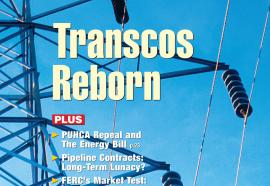Power Measurements
The new Clean Air Interstate Rule is having an unexpected impact on power generation asset values.
With compliance costs estimated at $50 billion to $60 billion during the next 15 years, the Clean Air Interstate Rule (CAIR) affects just about every market participant in the electric power industry.


